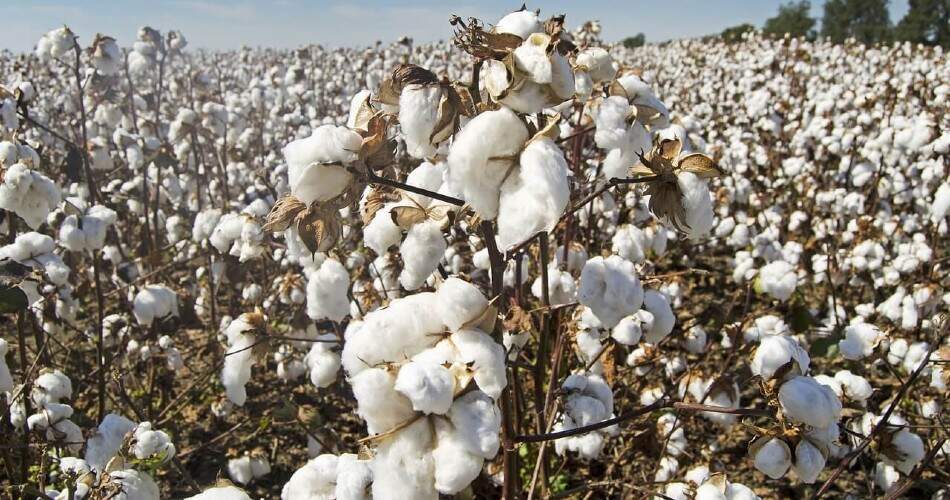Estimated reading time: 3 minutes
Cotton is a natural fiber that, when woven or knitted, produces a soft, strong, breathable, absorbent, and washable fabric. Cotton comes from the fluffy fibers that surround the seeds of the cotton plant. Although the cotton plant grows wild in several dry tropical or sub-tropical regions, it is a labor-intensive crop. Optimal growth requires dry heat, sun, regular irrigation, and protection against pests and weeds.
Cotton is grown for trade in over 80 countries. However, production is concentrated in only six: China, India, Australia, Brazil, the USA, and Pakistan, which produce 80% of all cotton.
Being vegan and biodegradable, cotton has all the qualities to become a durable fabric. Unfortunately, this seemingly harmless fluffy fiber has a strong footprint on the environment. Conventionally grown cotton is harmful to the environment due to high water consumption, pollution, soil degradation, greenhouse gas emissions, toxic pesticides, and fertilizers.
Water use and pollution
More than half of global cotton production occurs in areas with high or extreme water stress. It takes 2,700 liters of water to make a single cotton t-shirt. Such large volumes of water are directed to farms, and cotton does not come from natural sources, is not friendly to people, and other agricultural uses. The consequences are severe: for example, the Aral Sea has shrunk by 85% after decades of cotton production.
Toxic chemicals
Currently, many chemicals are used to grow cotton, about 6% of the world’s pesticides and 16% of all insecticides, well above any other crop. These substances are very harmful to the environment, contribute to greenhouse gas emissions and pollute thousands of liters of drinking water. The World Health Organization has found that the most common insecticides used in cotton production include three of the most dangerous chemicals.
Degraded soil
Another problem with cotton production is the extensive use of land, turning significant habitats into agricultural use. Such large amounts of water also lead to salinization of the soil, which means that other plants will have difficulty or will not grow there.
The problem of biodegradability
Although they cannot serve as food for other plants, the fluffy fibers that make up the cotton capsules are fully biodegradable and compostable. However, if they are treated with certain chemicals or mixed with synthetic materials, as is usually the case in the fashion industry, they lose their durable property.
The solution is to use materials and methods that reduce the impact on the environment, such as organic cotton. It is a fantastic sustainable alternative to commonly grown crops. This organic production system focuses on maintaining soil fertility and does not use toxic pesticides, synthetic fertilizers, and harmful chemicals. There is also no risk of allergies.
If you want to find out about the importance of bees to the environment, check out our article on this topic: Why bees are important to the environment?
[Photo from Pixabay]
